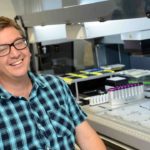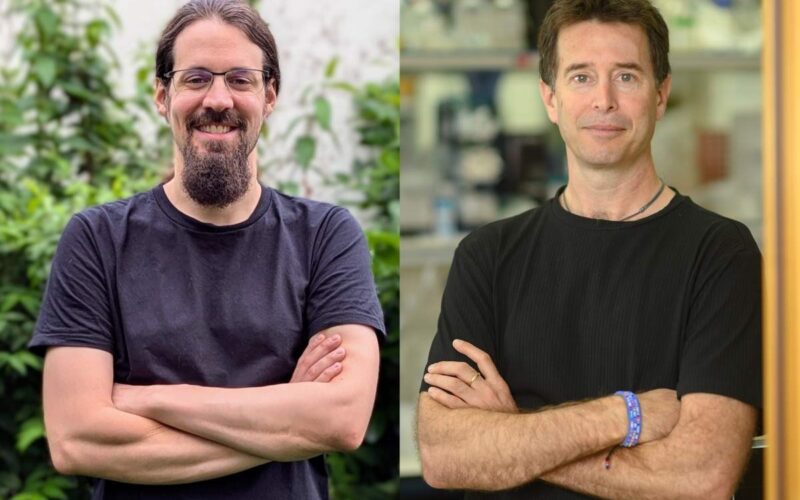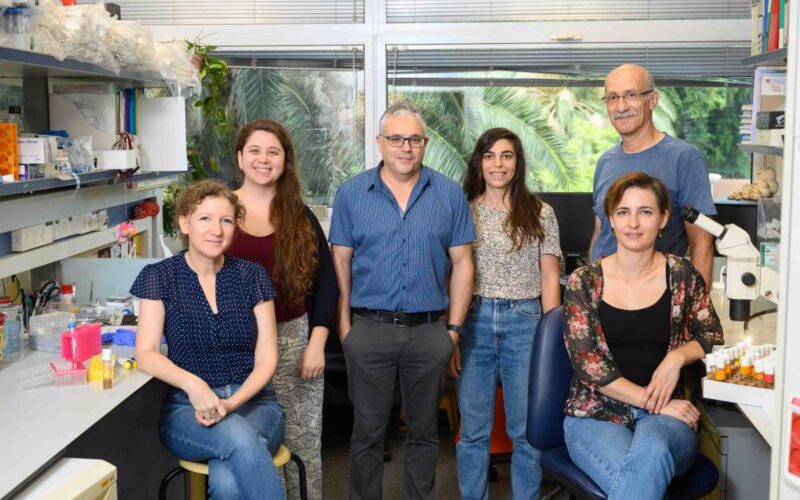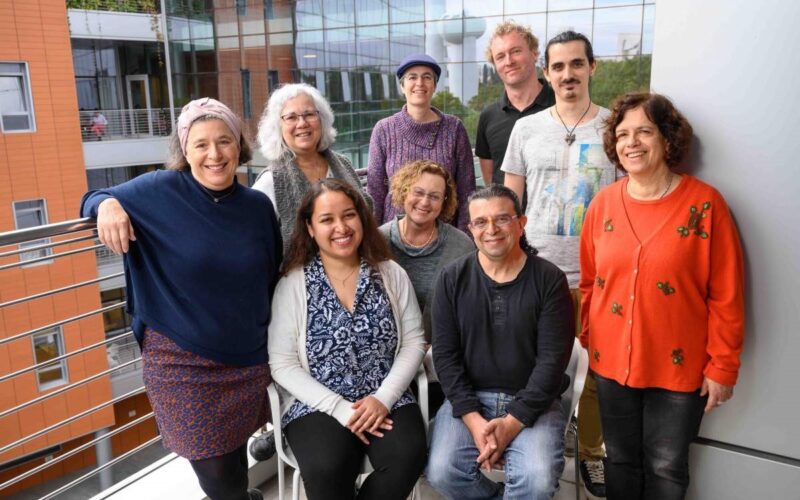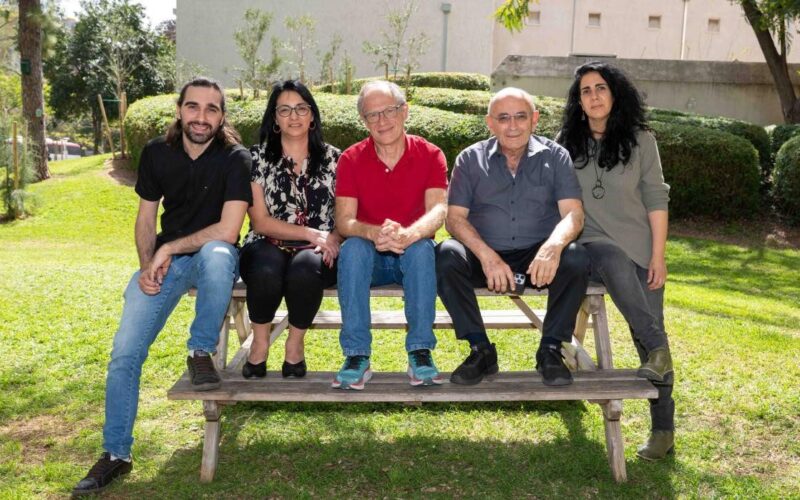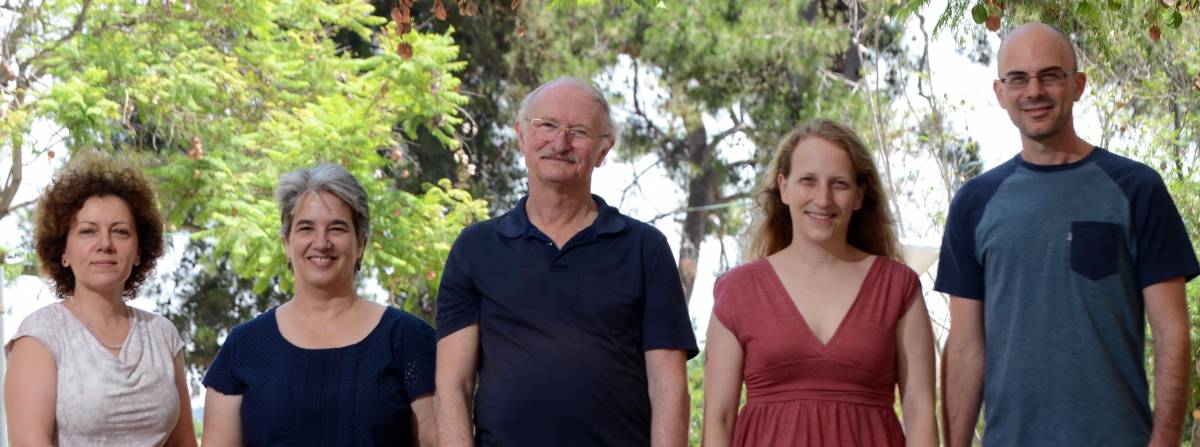
August 3, 2017
Researchers at the Weizmann Institute of Science have found a whole new role for one of the most famous proteins in cancer research – p53.
If any gene has a celebrity status, it is the tumour suppressor p53. The gene has been featured on magazine covers, pronounced “molecule of the year” and dubbed “guardian of the genome.” This is because malfunctions in p53 are involved, in one way or another, in practically all types of cancer. Tens of thousands of studies have already been dedicated to this gene, and much effort is still being invested in understanding how exactly it works.
In a study published in Genes & Development Weizmann researchers have provided evidence that p53 keeps cells from turning cancerous in a new way: Not only does it help prevent the accumulation of DNA damage and otherwise protect the genome, but it also acts as a master switch that controls the epigenetic commands. Epigenetic commands determine the genome’s function by making chemical changes in the DNA or its packaging proteins.
All body cells harbour in their nuclei the same genome; they rely on epigenetic commands to dictate which genes are turned on and off in each cell, and this, in turn, determines the cell’s identity – whether it becomes part of a muscle, the brain or another tissue. In the past few years, scientists have increasingly realized that it is not just mistakes in the genome itself, but also epigenetic mistakes that can cause cells to turn cancerous and start multiplying uncontrollably.
In the new study, postdoctoral fellow Dr Ayala Tovy and colleagues, working under the guidance of one of the pioneers of p53 research, Professor Moshe Oren of the Molecular Cell Biology Department, revealed that p53 plays a role in regulating the placement of chemical tags called methyl groups on the DNA. These tags are key to controlling the activity, or expression, of genes: They ensure that genes whose expression is undesirable in a particular cell are kept silent.
Working with stem cells from mouse embryos, the scientists found that p53 regulates the amounts of enzymes that place or remove the DNA’s methyl tags.
“These enzymes constantly attach and remove epigenetic markers, something like writing and erasing portions of text on a blackboard,” Oren said.
“We’ve found that without p53, the proper balance between the ‘writing’ and the ‘erasing’ was disrupted. Too many methyl groups were attached to the DNA, so the epigenetic commands were jumbled.”
According to Dr Tovy, the disruption in epigenetic markers interfered with the expression of numerous genes, which, in turn, prevented the cells from functioning properly and responding to environmental cues in an orderly fashion.
“Our study has shown that p53 is a guardian not just of the genome, but also of the epigenome,” Tovy said.
These findings may advance the search for therapies to target the epigenomic defects in cancer. Such therapies might work on their own or in combination, improving the effectiveness of existing cancer drugs. Moreover, since cancerous cells hide from the immune system partly by altering their epigenomic profile; a better understanding of the relationship between the epigenome and the immune system cells that target cancer may aid in the idea of “exposing” tumour cells to immune mechanisms, so that they can be more effectively destroyed.
The research team also included Professor Amos Tanay and Drs Adam Spiro and Zohar Shipony of the Computer Science and Applied Mathematics Department; Dr. Yael Aylon and Noa Furth of the Molecular Cell Biology Department; Dr Elena Ainbinder of the Life Sciences Core Facilities Department; and Professor Michelle Barton, Dr Ryan McCarthy and Dr Kendra Alton of the University of Texas MD Anderson Cancer Center.
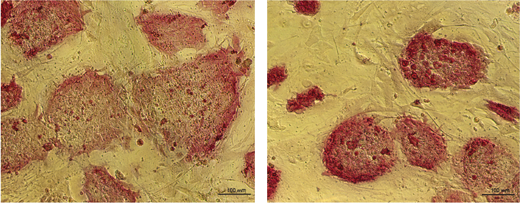
Colonies of mouse embryonic stem cells, viewed with a microscope: the cells differentiated properly when their genome contained an intact copy of the p53 gene (left), but not when the p53 was missing (right)
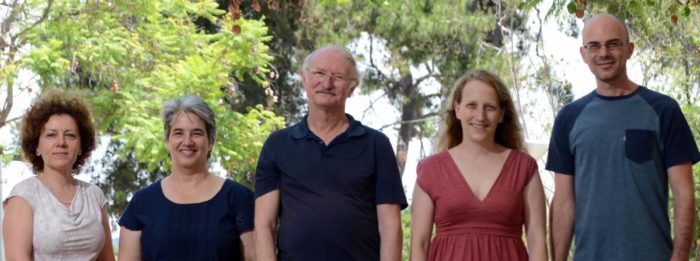
(l-r) Dr. Elena Ainbinder, Dr. Yael Aylon, Prof. Moshe Oren, Noa Furth and Adam Spiro

